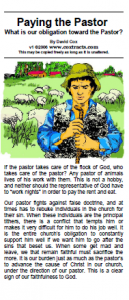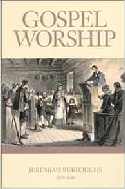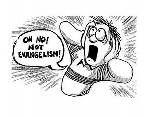Ads
Contents
- 1 The Marks of a False prophet
- 1.1 Definitions and General Orientation
- 1.2 The Gist of Discerning a False Prophet
- 1.3 Doing God’s Will marks the True Minister
- 1.4 Motives and Goals of the False Prophet
- 1.5 False Prophet Object #1: Control of others in their group, and mainly the group
- 1.6 False Prophet Object #2: Fame and glory in the eyes of others.
- 1.7 False Prophet Object #3: Money, Money, Money
- 1.8 False Prophet Object #4: Sexual Favors and Abuses
The Marks of a False prophet

In this post, I want to analyze some things about how the false prophet works, and how you can use this knowledge to identify a false prophet. The idea here is that there are ways to identify a false prophet, and rather than listing correct and incorrect doctrines (because he will read this list and say he is teaching the correct, and invent new false doctrines), we examine how a false prophet thinks and works his work.
For an overview of this, see
False Prophets and Teachers Overview
Definitions and General Orientation
First of all, there are a lot of good men of God out there who are serving God, and teaching and ministering basically as how God wants them to do so. I would humbly include myself in these. But we need to understand that a false prophet would also include himself in these “true ministers of God” as quickly or quicker than anybody else. He is a wolf (his essence) in sheep’s clothing (his appearance to others). So although deep down, he is a wolf, he wants to identify and be accepted and received by God’s people as a “great man of God”. Moreover, it is not only a desire of his, it is the only way he can work his work, so it is an essential that he (1) knows what the general, popular view(s) of what a man of God is, (2) that he is identified with these things.
Notice that I did not say he complies with them, because in his essence, he is false, and an antichrist, being motivated and manipulated like a puppet on a demon’s hand. Therefore, if a “good Christian” tithes, then he will put a tithe envelope into the offering plate every week, but it may be empty for all he cares. The essence (what you really are, and God judges a man by this) is not of interest to him, but rather the appearance. In a prayer meeting, people may separate and go into another room to pray two by two, but he is content to just talk to a friend if the friend is in on his act, or he will pray profoundly to impress some underling. His heart is not in getting God’s work done on your knees, but using the prayer as an instrument for his purposes. A false prophet is also a great hypocrite, which translates to our modern speech as being a great actor. He pretends with great talent, to convince all. Basically, everything he does and teaches is oriented around this impressing the church people.
While this kind of deception and duplicity is seen sometimes by a few in the church, in general, he is careful enough to not allow many to see his duplicity and his shallowness. So how do you catch a guy like this to correctly discern him?
The Gist of Discerning a False Prophet
Mat 7:15 Beware of false prophets, which come to you in sheep’s clothing, but inwardly they are ravening wolves. 16 Ye shall know them by their fruits. Do men gather grapes of thorns, or figs of thistles? 17 Even so every good tree bringeth forth good fruit; but a corrupt tree bringeth forth evil fruit. 18 A good tree cannot bring forth evil fruit, neither can a corrupt tree bring forth good fruit. 19 Every tree that bringeth not forth good fruit is hewn down, and cast into the fire. 20 Wherefore by their fruits ye shall know them. 21 Not every one that saith unto me, Lord, Lord, shall enter into the kingdom of heaven; but he that doeth the will of my Father which is in heaven
First of all, be aware that Christ is giving us a “how-to” beware of false prophets. He comments on the positioning of “false Christs”. The idea of a “christ” is a specially endowed and blessed “man of God” to provide solution to all your life’s crises. Jesus Christ is not just our remedy for the eternal condemnation of sin, but also our remedy for actual sin in our life (sanctification), and his example and character are a powerful force to guide us into God’s will. Not that in verse 21, Christ identifies a true minister of God as being identified with “Doing God’s Will”.
Another element is his fruit. By their fruit you shall know them. Whereas today we have a demonic fixation of quick and showy results, God speaks of the fruit of a man’s life. Fruit takes time, and it is a product of much time, but not just time (decay is also a product of time), but a long time of good things that make the plant healthy and growing (developing the way God designed it), and then the good fruit comes along. If a person would put aside the bragging of many preachers, and just look at what time declares to them, they would leave those ministries. For example, in easy-believism, they brag about the great work of God that they are doing, and to prove this they spout out statistics, “This month we have had 300 saved”, “This year we had 6,000 saved”, etc. But look around you. A church of 1000 people with 6000 saved each year, after 5 years should be up around 31,000 people, but that doesn’t happen. Their “fruit” (over time) shows that what they are doing really isn’t producing truly saved people. In the case of healing ministries, equally, those who are healed are anonymous people that come, prove the preacher right, and then disappear without really being available for close examination over time.
Doing God’s Will marks the True Minister
1John 2:17 And the world passeth away, and the lust thereof: but he that doeth the will of God abideth for ever.
Here we need focus for a minute. Salvation depends on a surrender to God’s will. The minister of God is a person who personally lives this. So we can safely say that any minister that doesn’t “adhere” closely to the Word of God in his preaching and ministry is a false prophet. The majority of the false prophets know this element very well. But this is what distinguishes him from the good minister, he rejects God’s Word secretly. He wants to “do his own thing”, which is really the “thing” of Satan, to not allow God to dictate his life.
The true man of God is a person that is very easily turned in the hands of God.
1Sam 13:14 But now thy kingdom shall not continue: the LORD hath sought him a man after his own heart, and the LORD hath commanded him [to be] captain over his people, because thou hast not kept [that] which the LORD commanded thee.
Acts 13:22 And when he had removed him, he raised up unto them David to be their king; to whom also he gave testimony, and said, I have found David the son of Jesse, a man after mine own heart, which shall fulfil all my will.
What marked David as a man of God is that he energetically sought to fulfill all the will of God without interposing his own will into what he was doing. Dictionaries define this as “a man with similar tastes and preference to mine” as well as “dislikes”. Ron Edmondson remarks that David had these characteristics: he was humble, reverent, respectful, trusting, loving, devoted, gave recognition to God, faithful, obedient, and repentant.
David’s life was a portrait of success and failure, and the biblical record highlights the fact that David was far from perfect. But what made David a cut above the rest was that his heart was pointed toward God. He had a deep desire to follow God’s will and do “everything” God wanted him to do. He was a man after God’s own heart. Let’s look at some characteristics of David’s life to discover what that entails: Part of why David is called a man after God’s own heart is that he had absolute faith in God. … Another reason David was a man after God’s own heart is that he absolutely loved God’s Law. David was a man after God’s own heart in that he was truly thankful. After he sinned, David was truly repentant. from gotquestions.com
Although this is a brief overview or introduction to a man of God dedicated to fulfilling God’s will, it does give us some idea of what he should be like.
I think every false prophet truly thinks himself as saved and going to heaven (i.e. is self-deceived), but in reality, is controlled by a demon. He doesn’t know he is controlled by a demon, but there is a driving force within him to push him to his goals. He sees “his goals” as being God’s goals, and thus he teaches others, and thus he believes his own lie (that his alternative to God’s will is really God’s will). This is where the teaching that “anything that hurts this ministry hurts God’s ministry” comes in. “We are God’s ministry” is really what he believes.
Motives and Goals of the False Prophet
False prophets and false teachers have their own objectives. First, what is the true man of God’s objectives? He wants to obey God’s will and teach God’s Word. Therefore ALL true men of God focus heavily on the Word of God, and they preach and teach that. Here I would say that a lot of people would differ with me on what is God’s will as presented in the Bible, and yet they are not false prophets. Many ministers simply do not see or understand various points in God’s way of doing things, and in God’s doctrine. Ignorance (simply not knowing), or lack of understanding (not being able to understand something correctly) does not necessarily make a person a false prophet. These people, when presented with the truth of God, will come around to the biblical position. The false prophet won’t hear of it, usually not even allowing others to try to correct him.
We can identify basically a few common objectives or goals or motives in which all false prophets usually fall. These are not all-inclusive in the sense that all false prophets will have all of these. Some take a tactic to refuse one or the other to mark their ministry as “different”.
False Prophet Object #1: Control of others in their group, and mainly the group
When we look at this, a false prophet has nothing if he doesn’t have control of the group. He must influence so strongly that nobody would dare defy or differ with him. By control, he gets the rest of what he wants (below), but without control, he will get nothing usually. The control that he exerts is different from false prophet to false prophet, but in general, shows up in various by similar ways.
First, there is the dictator genre. In this method, he justs assumes he is the “father” of the group and tells everybody else what to do. This is seen by a very strong assertion of HIS particular authority. He can (with all correctness) reach into the offering plate and pull out a handful of bills, and put them in his pocket. Nobody can say anything (at least to his face). This is detected by the first instance that one of his immediate underlings doing the same thing, and he goes ballistic on him, condemning him to no end. Here we see a principle at play, that of a false teacher is always a hypocrite. The false teacher wants to “get” something illegitimate from his experience with God’s people. Something that doesn’t belong to him, or rightly in his rights to take. But he is a hypocrite in not practicing what he preaches. There are two standards at play in his ministry, one for him (and sometimes the privileged elite of his lieutenants he allows in), and one for the masses of lemmings that follow him. This is very much a key element in all false prophets.
See my tract on ch16 Example of the man of God – which explains that God has instituted rules for transmitting morality from one person to another, and only a man of God that lives the principles of Christ can truly transmit them to others. If he teaches (even excellently) but doesn’t live them, he teaches other hypocrisy, not morality.
Watchman Nee wrote a book on the Ascencion of Man, in which he taught that a church member is to obey his pastor no matter what. If the pastor told him (or her) to do something that they know is wrong in the Bible, they are to comply anyway, and any blame God would assign would be only on the pastor, not on that particular member. Hitler’s propaganda experts would have loved studying that book. I have also heard (from Baptist Churches) of some pastors that do things that they shouldn’t (a man of God wouldn’t do), and then they are discovered by one or two, and the pastor pushes the argument that the great work of God that they are doing by means of the person of the pastor is going to be trashed by Satan if anybody finds out. Here, for example, the Bob Jones University scandal where teachers and administrators (very few) had illicit sexual relations with the students (also Jack Hyles with his secretary), and the way to deal with this is to “cover it up.” Bill Gothard had the same, and his board wanted a public venting, and he didn’t. He appealed to BJU administration who sent board members and the vice president to counsel, and revealed that this how they have always done it (by covering up and browbeating the victim). As a footnote, this issue of sexual abuse of students was so strong against BJU that they called in outsiders to evaluate how they have handled such cases (the Grace group). While it is obvious that you need a stamp of approval from somebody because you have lost your credibility, these things too can be manhandled behind the scenes. In the case of BJU, I don’t know anything, but Gothard looked to BJU because he felt they would take his side (dictator needing control of his minions). Although the individuals I mention would publicly disavow the actual incident, they publicly go on record as endorsing the “do not destroy God’s ministry by trashing us.” Again, they assume God’s ministry is embodied basically in them, and the fact that they have done wrong and will not admit much less confess this sin is a sure sin of false prophet syndrome at play.
What we need to focus on is not the particulars of one ministry or minister, but to see the trend and analyze it as being that which a false prophet would use. They must identify as a “good guy” (sheep), and not as a “bad guy” (wolf). These forces are the basics of being a false prophet so there is no price too great to pay in establishing them and keeping them.
Secondly there is the “smartie” genre. By this, the influence and power that is sought after is gotten not by brute grabbing it (dictator genre), but rather by a more sutle method, “I am a Bible genuis (know-it-all), therefore what I say has weight.” It is very unfortunate that the best churches in recent history have used this weekly in their sermons and teaching by means of expository preaching. I believe in expository preaching and teaching because it is good, and helpful to true Christian growth, but so much of it would seem to be appeals to experts in Greek and Hebrew, and basically Bible college professors and experts of one kind or another. In truth, these people are smarter than the normal “Christian-in-the-pew.” But the question has to be made, “because they know more, does that give their opinion more influence over others?” The answer is no.
Truthfully, morality is truly transferred from person to person, only when the “teacher” person HAS MORALITY TO GIVE, and then he lives it first, and then he teaches the theory or principles of it to others. MOST Bible college professors have a lot of problem with living out their Christian faith to be honest. To hide behind those ivory towers is not to give them authority. The Bible teaches us that we must see and examine the faith of our moral teachers.
Heb 13:7 Remember them which have the rule over you, who have spoken unto you the word of God: whose faith follow, considering the end of their conversation.
Again we see the Bible clearly teaching an examination of the “end” or “final product” of their Christian life, and to imitate those who have a final spiritual product of spiritual fruit. Consider that the Christian College/School movement has separated our Bible teachers from the students. They only see them in the classroom. Do these professors pray? witness? have a good marriage? have control over their kids? Lovingly treat their wives/parents/grandparents? Do they even go to church? How about prayer meeting? Nobody knows because “the system” keeps them out of view. This is a character trait of false prophets, hide their own personal life so that comparasions and evaluations cannot be made.
On another permutation of this, there are pastors that teach that they are Bible experts, and nobody can question or differ from their interpretations of things. This goes along with a muted “worship me” teaching of these men. I see the KJV only movement as a reaction against this Bible school experts that are always dragging out Greek and Hebrew to “overturn our understanding of God’s Word”. Ignorant people cannot fight back against this normally, but pride in ignorance, finding your own experts to assert your ignorance, this is what has happened. The truth of the matter is that God did not give us His Word in English, Elizabethan or any other kind of English. To understand what He really said, you have to go to these languages. But the pride that some preachers and Bible professors take in “correcting” the common man has caused this problem to grow beyond portions.
Note: All false prophets take great pride in correcting others (whether justified with the Bible or not). They all very prominiently position themselves, and their ministry as teaching the real truths of Scripture while the rest don’t. That element is browbeat into their followers. “Leave me, and you leave God’s truth at the door.” This presumes first of all that nobody else out there teaches the same things they do (many times there are people who teach the same thing, but many times they are condemned heretical groups, e.g. Jehovah’s Witnesses position on Christ is the same as the Arian heresy of the first century. Secondly, it presumes that that particular preacher and his ministry are essential in having a real relationship with God. Note that the power of God is in God’s Word, not in the ministers. But this I mean, that other people will get the power of God if they submit and obey God’s Word. You and your ministry have no corner on the power of God. God works through many servants, and your best bet is to be “one of many”, not “the only exclusive servant of God”. The mentality that ministers and churches and groups project is important.
To the extreme on this issue is that position, “if you are not in our group, you cannot even be saved.” This is the tactic the Roman Catholic Church has taken through the years, the Jehovah’s Witnesses, Mormons, and a long list of cults take. It is sad to see supposedly good churches basically coming to the same position.
SIDETRACK NUMBER ONE: BAPTIST DISTINCTIVES
Okay, I know, you are disappointed that I am going to preach to you on the Baptist Distinctives, but I believe in them. Two come into play here, the priesthood of every believer, and soul liberty. These teachings have kept many false prophets at bay, and unfortunately, it has become common for Baptist churches with strongly Baptist ministers to totally ignore them. If every believer has his own priesthood and ministry before God, then the church is not as essential as it may want to be. I am not advocating ministering outside of and independent of the local church, but local churches need to release and empower their members to minister, not restrain, corral, and control them. There is a “sweet spot” in this where the members are not rebels and disrupting the order of the local church (one extreme), and there is another extreme of the church so closely controlling the members and what is happening that God cannot speak directly to a Christian to do something for Him. It has been my unfortunate experience as a missionary to see one of my supporting pastors tell several people in his church not to send anything “extra” directly to me as a missionary, because the church supports me, and their extra should go into the general offering of his church. I am not sure when God speaking directly to people, moving them to give something extra to a missionary in need becomes Satanic, wrong, and a betrayal of the ministry of that church, but it is sad.
Soul liberty basically means that each individual needs to understand God’s principles at play in his life, and make his own decisions. Many Baptist pastors totally are against this, and they basically tell their members what they should do. As a pastor that gives counseling all the time, it is very frustrating to have members come to us with this mentality pre-programmed by their previous church. God does not give me, the pastor, any direction on which car you should buy. Don’t tempt me by selling your soul liberty to the devil, and try to make me part of that deal. Soul liberty means to me as the pastor that I have to focus on biblical principles by expositing those passages that clearly teach them. I cannot get into micromanaging my members’ life without going into a cultic element myself. I will pray for you, and I will try to understand your situation and give you verses that will guide you into God’s will, but in the end analysis, 1.) I don’t want to be responsible for your decision, 2.) God will additionally finalize his will for your life with your conscious and heart, so I cannot enter into the decision to make it for you because I am not you. Many people are not right with God, so God doesn’t guide them (except to get right with Him), and then when they have to make a decision, they want somebody else to do it for them. Lazy-bones! Do it yourself!
False Prophet Object #2: Fame and glory in the eyes of others.
A false prophet may have various motives in doing what he does, but a very clear one is that of what others think of him. He is very much manipulated by his own popularity and glory, or the lack thereof. Notice that he doesn’t care much about what God thinks of him. This is seen by his abuse of others. He gets a step up on everybody else by stepping on them to get up. So a false prophet is a great manipulator, in that he is very skillful at using people for his own purposes. Again we see he focuses on his goals (desires) and his organization’s desires, as a great, valued, spiritual goal. Everybody must bow before his goals, and everything must support it almost exclusively. His goals are God’s goals. He cannot bring himself to bow before God, i.e. “God’s goals are his goals.” Because in doing that, he would have to exposit from Scripture what God’s goals are, and Scripture speaks of humility, sacrifice, and service to others instead of glory. He doesn’t want that.
While many a false prophet will arrogantly boast of their own service to others, when you find a preacher or pastor that serves humbly without recognition by man, that is most probably a true man of God. Again this objective of the false prophet dovetails with the above mentioned, “don’t criticize me”. It is rare in leaders that they can take constructive criticism from their own people. Most don’t value anybody in their organization such that they would have a valued opinion.
False Prophet Object #3: Money, Money, Money
This seems to be the common objective of most ministries, the collection of large sums of money. They espouse their evils doctrines, and they ply their arguments, but in the end, it is not about serving and helping people, but about harvesting their money, many times from people who least can afford to give. Again the astute false prophet will publicly shut out this from public scrutiny, but in the end, it will come in under the table. There is a just salary a man of God should receive from those he ministers to. But consider, what is a just salary? If you take an average of the people in a church, that would be just. Paul speaks of double honor, so maybe in some cases, he could make double or triple, or even five times what the average person is making. But many of these false prophets are making 100s of times more than what their richest members make, and the TV ministers would make 1,000s or 10,000s of times more.
To me, it is instructive that God requires in several verses that those who are in the leadership of His church be people who are not “money hungry”. The mark of a true prophet of God is that he does not covet (strongly desire) the riches of other people.
Matt 10:8 Heal the sick, cleanse the lepers, raise the dead, cast out devils: freely ye have received, freely give. 9 Provide neither gold, nor silver, nor brass in your purses, 10 Nor scrip for your journey, neither two coats, neither shoes, nor yet staves: for the workman is worthy of his meat.
Acts 20:33 I have coveted no man’s silver, or gold, or apparel.
1Tim 5:17 Let the elders that rule well be counted worthy of double honour, especially they who labour in the word and doctrine. 18 For the scripture saith, Thou shalt not muzzle the ox that treadeth out the corn. And, The labourer is worthy of his reward.
But let’s make this point very clear. According to 1Cor. 9, a minister is to live economically from what he does. This is not a sin that he receive a salary or money to support himself, contrary, the opposite is true, his financial support should be coming from his work, and this makes him honorable. God’s principle is that the good laborer is worthy of his salary. So there is nothing wrong with him receiving money from his ministry. What is wrong here is when his desire, motivation, and mindset is set on gathering more and more money. That is wrong, and that kind of person is disqualified from the ministry. The churches that sell all kinds of stuff in order to collect money “for the Lord’s work”, is simply wrong. Never in the NT do we ever see any church selling anything. All income is from free will offerings. We need to very quickly make the point, though, that it is the people of God under his ministry that should have the initiative to support him fully (only through free will offerings), with a good salary, which would be equal to what any OF THEM are making. If they have cars and houses, then their minister should have the same. If the minister works excellently in preaching and teaching, then Paul says he is worthy of double honor (1Tim 5:17).
There are extremes we need to deal with, (1) the false prophet that squeezes money out of people left and right, (2) good men that see this, and react by never receiving anything from God’s people. It is wrong that a minister has to work a secular job in order to support himself, but many ministers in the Bible did do that because of the “squeezing” their people had previously gone through. When a church matures to the point of being strong, it will take care of its ministers.
1Pet 5:2Feed the flock of God which is among you, taking the oversight thereof, not by constraint, but willingly; not for filthy lucre, but of a ready mind;
We should especially focus on the motive of what the minister does. His motive should not be on economic thoughts but on obeying God’s will. His sermons are to mentally checked every week by himself to see if it would hurt the offering or offend the rich or generous. He preaches the Word of God, and whatever happens with offended people is between them and God.
False Prophet Object #4: Sexual Favors and Abuses
Many times false prophets have a motive of taking advantage sexually of their followers. It only follows logically that they would do this because they are taking advantage in other ways, why not sexually too? Again the double standard is seen because while they will be cruel and heartless on members that have sexual romances with others, not their spouses, they themselves should be exempt.
The natural sexual urges of a person’s humanity is resolved by God in marriage to a single person of the opposite sex (always believers with believers). The false prophet takes advantage of his followers for his financial and egotistical gain, so why not sexual gain also?
When this happens, the environment becomes tense for no reason at all. Those he takes advantage of being both repelled, yet being some of his most faithful followers, they cannot continue to push to be as close to the leader as the other followers. This makes a conflict in them, and they are both wanting to follow, but wanting to flee. The way a false prophet deals with this is to cover it up, pressuring those who know about it to be quiet and not make an issue out of it. They hope it was a once in a lifetime thing, but with time, they find out that this is the “standard operating procedure” with his people.
One of the key elements here is that the false prophet wants people to follow him, not follow Christ. In the case of a true man of God, his spiritual pattern is Jesus, and being human, he takes and encourages those around him to give him feedback, opinions, suggestions, and frankly, tell him the truth when he is wrong, and this may even result in a gentle rebuke when he steps out of line. THe real man of God will not let sexual promiscuity happen as a rule, and if it does happen, he will voluntarily step down from the ministry because of his profound love of Christ. To cross the line is to disqualify ones’ self from ministry. If it comes down to a “knock down drag out fight” for the minister to step down, then he is just a false prophet. These false prophets will always go somewhere else to start their ministry over if they get thrown out.
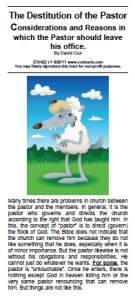 See ch42 Destitution of Pastor
See ch42 Destitution of Pastor
Another common defense of the false prophet is to make himself “immortal” or “untouchable”. By making his own self an object of adoration, he assumes (falsely) that he is untouchable when he does this wrong. Most congregations have at least some people that would take issue with this (in the USA especially because of their independent spirit), so wars break out commonly over these kinds of issues.
See ch26 “Don’t touch the anointed of God”
See also
There is a work by Puritan Thomas Brooks “Touchstone of Sincerity” in which he presents 13 wills/will nots of a hypocrite. This work is very much akin to the topic of the False Prophet (which is also a hypocrite under it all). Excellent Read!
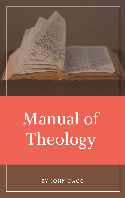
Dagg Manual of Theology is a theology work in 2 volumes by J.L. Dagg a Reformed Southern Baptist. It is an extensive, very ample presentation of doctrines.
This is an extensive Bible Systematic Theology (Bible Doctrines book) from a conservative point of view.
Read/Download: now with pdf download link. 50,000 views on this page with download link

